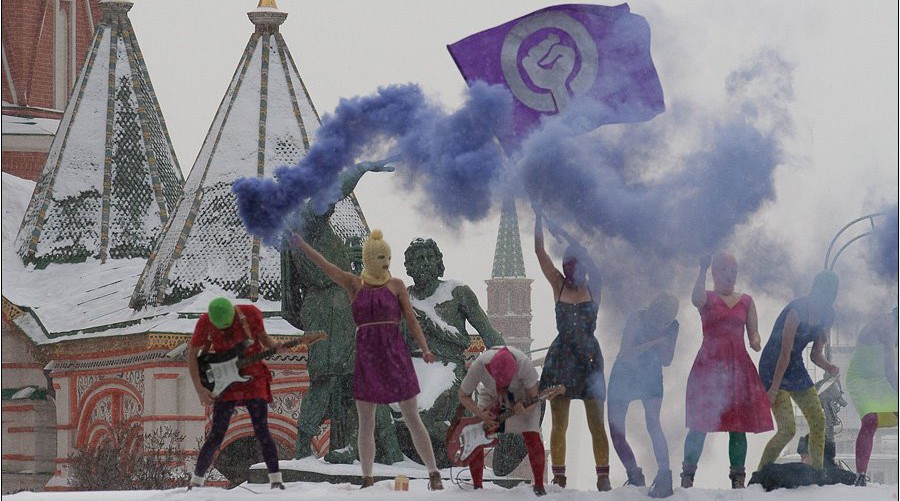It is self-evident that every host country of the Olympic Games faces pressure from the international community. Whether it’s regarding their failure to complete the facilities in time for the games, unfair working conditions or even security concerns, the host countries must always deal with international criticism when it comes to the Olympic Games. In addition to that, it has also become the norm that political activists within the host country take advantage of the international media attention to defend their cause in a more public way (the Tibetan demonstrations in China 2008 and the Black Power salute in Mexico 1968 immediately come to mind).
Evidently, the Sochi Winter Olympic Games were no exception. With athletes’ and journalists’ daily tweets (#SochiProblems) which ridicule the unfinished constructions, the fantastic international video responses to the Russian anti-gay laws and the fierce criticism of the Opening Ceremony, it seems like the international community actually enjoyed mocking Russia’s Olympic Games almost as much as it enjoyed watching them. However, after watching the latest music video by Russian political music group Pussy Riot (link at the end) in response to their outrageous beating by a paramilitary group of Cossacks last week, it is inevitable to notice that there are much, much more serious concerns at hand.
Pussy Riot is a feminist punk group formed by approximately 11 women that mainly defends LGBTQ rights and organizes protests against Russian President Vladimir Putin’s policies. Even though the group was founded in 2011, it was not until 2012 — when they stormed into Moscow’s “Christ the Savior” Cathedral to perform a song against Putin — that they gained media attention. As a consequence of this event, Pussy Riot members Nadezhda Tolokonnikova and Maria Alyokhina were tried for hooliganism incited by religious hatred and were sentenced to serve in prison for two years.
Yet, these two women were liberated in December last year as part of an amnesty to 25,000 people, which was passed to mark the 20th anniversary of the Russian Constitution. From the moment of their release, both Tolokonnikova and Alyokhina announced their intentions to create an activist group in the defense of prisoners and human rights (called Zona Prava) and to continue with their political activism.
Sure enough, Pussy Riot was ideologically present in the Sochi Olympic Games. Their song “Putin will teach you to love the Motherland” is a strong condemnation of Putin’s political censorship policies, the disturbing homophobic laws, the huge costs of the Sochi Olympics and the lack of environmental considerations in the construction of the Olympic facilities.
However, whenever Pussy Riot attempted to be physically present in Sochi, things did not proceed smoothly. In addition to the temporary arrest of two of their members under charges of robbery and being denied access to their hotel’s meeting rooms for their press conference (and therefore having to host it in a park across the hotel), the feminist group was viciously attacked on February 18. The video showing how these women were hit with batons by paramilitary Cossacks while they lip-synched to their new song in front of a Sochi poster has gone viral. Moreover, even though Aleksandr Tkachev, the governor of the region, expressed his regret over the incident and demanded it be thoroughly investigated, many Pussy Riot members declared that the police simply stood by and did not react to the Cossacks.
In response, on February 20th, Pussy Riot released the music video for “Putin will make you love the Motherland,” which includes scenes of the attacks and references the other censorship activists have faced in Russia. In Maria Tolokonnikova’s words, “The goal is to show what it is like to be a political activist in Sochi.” The video further denounces the recent verdict of sending environmental activist Evgeny Vitishko to a penal colony for three years, after he spray-painted the fence of a governor’s mansion that had been constructed in a national park. It also criticizes Putin’s decision to unplug the independent channel Dhozd from the air after it released a poll that the government considered “blasphemous” (“Should Leningrad have been surrendered to save the lives of hundreds of thousands of people?”).
It is needless to point out that the intimidation of activists, the authority’s level of impunity and the censorship laws in Russia are preoccupying. However, perhaps the most terrifying aspect of the situation in Russia is that the Closing Ceremony for the Olympics was last Sunday. Soon, journalists, athletes and tourists will leave Russia, also leaving Russian activists behind without the amount of international attention they need. The most frightening part of having Russian activist Vitishko jailed is that everyone will forget who he is in a couple of weeks. The most alarming part of having the Cossacks that attacked Pussy Riot out on the streets is that soon no one will remember them. And definitely, the worst part of having anti-gay and anti-protest laws in Russia is that, while these abuses take place, the international media will be too busy covering the problems arising in Brazil’s final countdown towards the World Cup.
